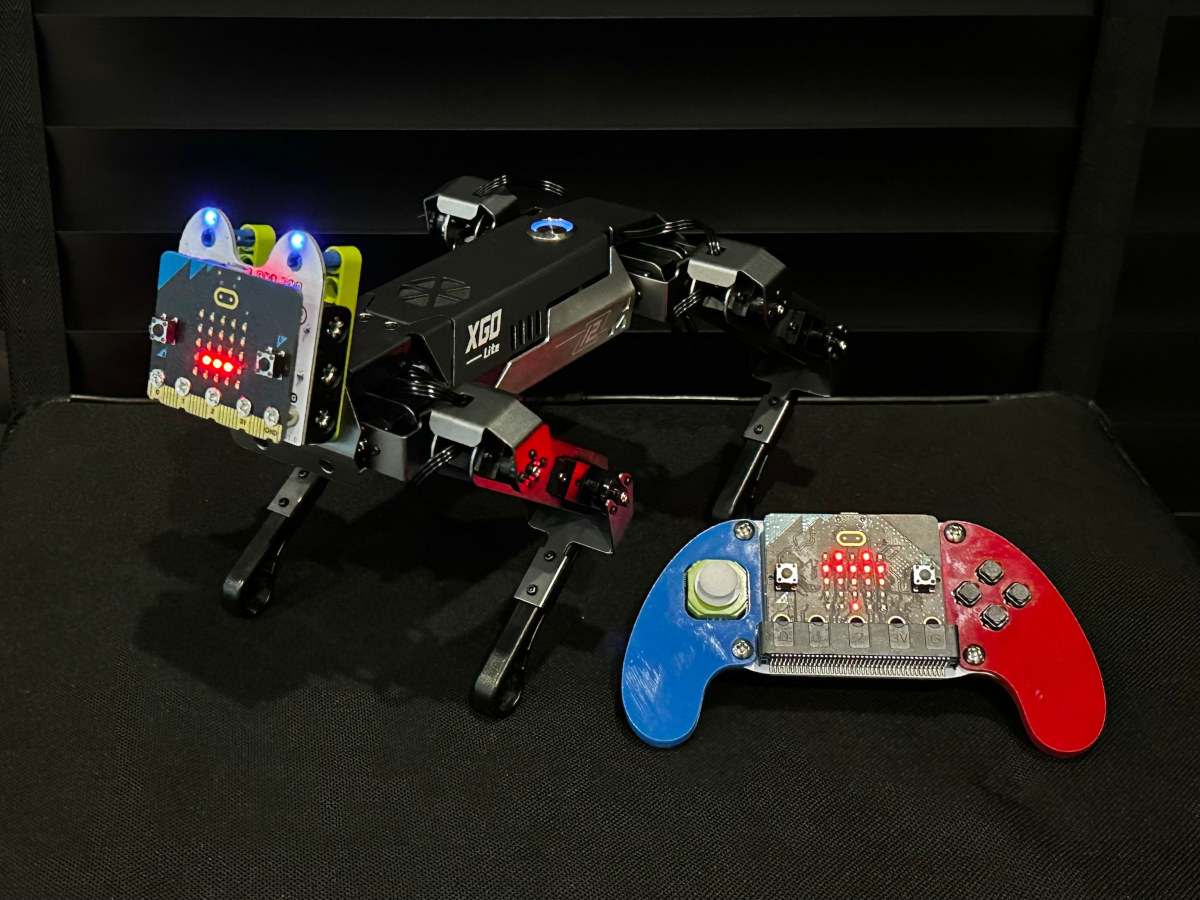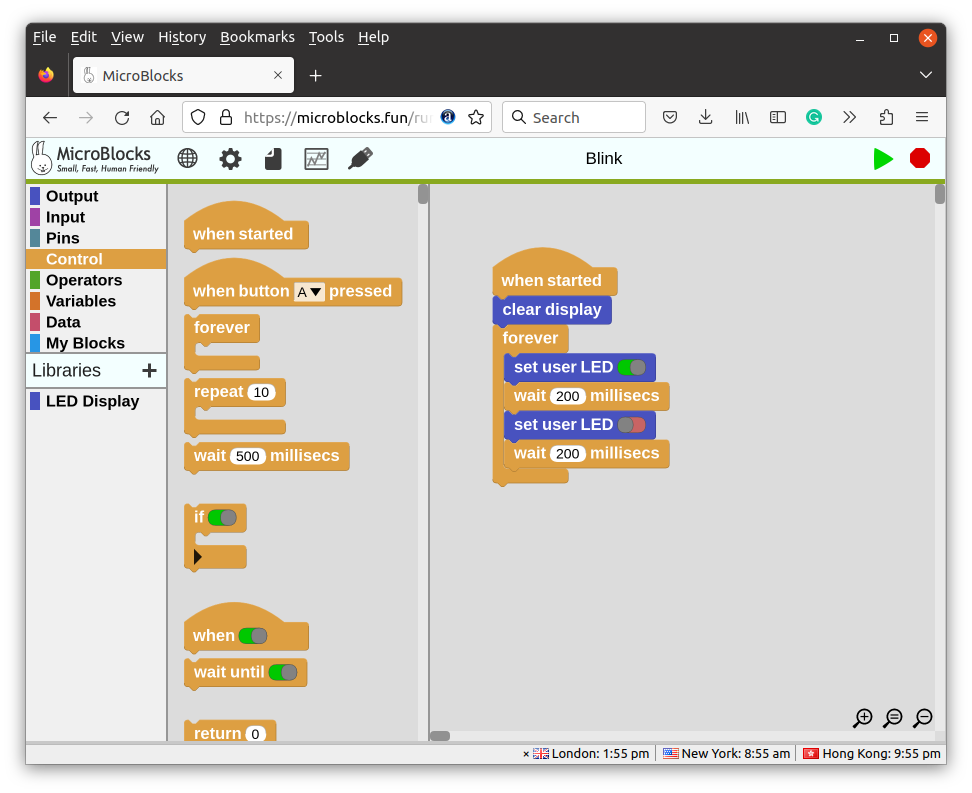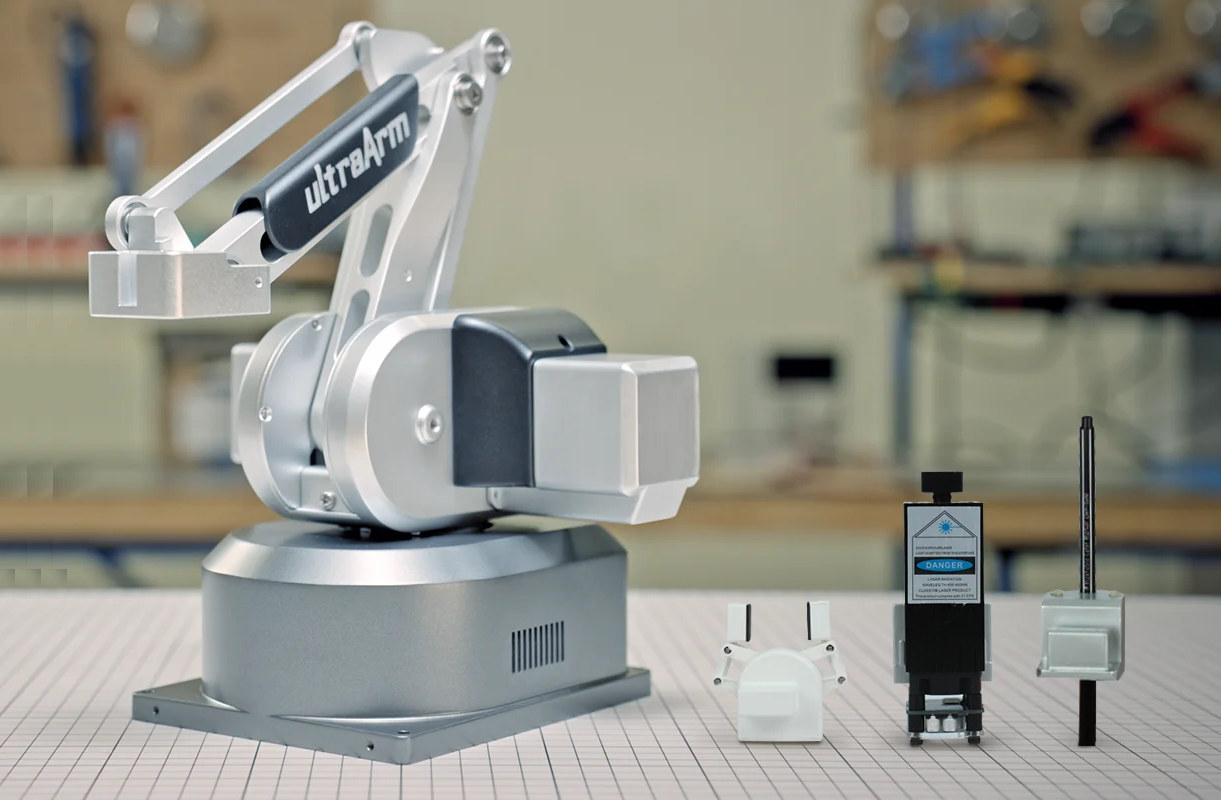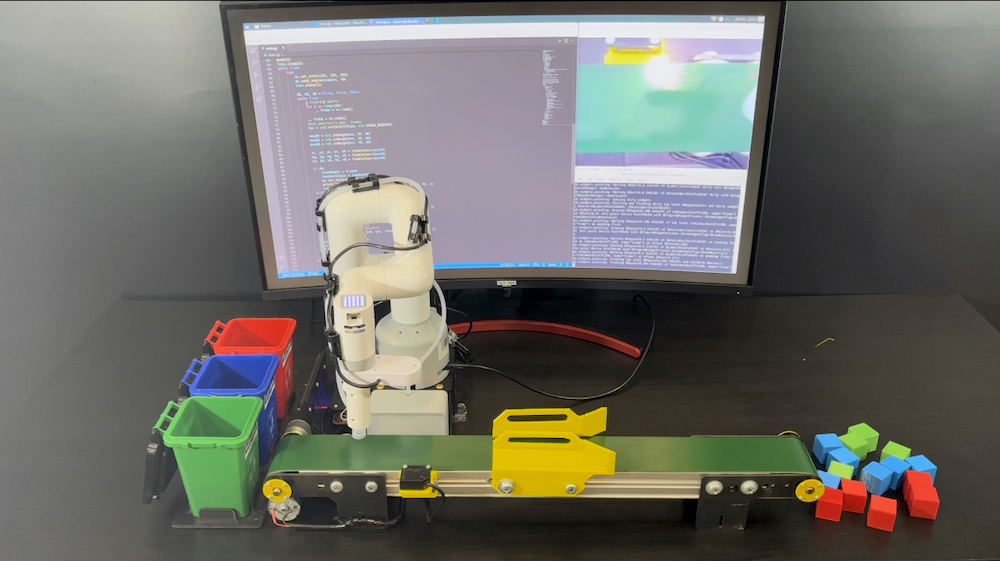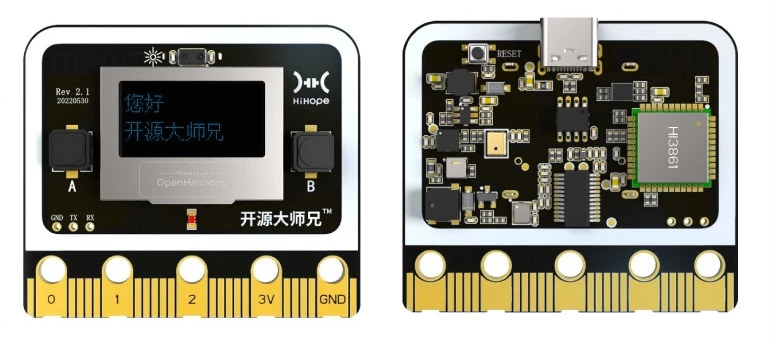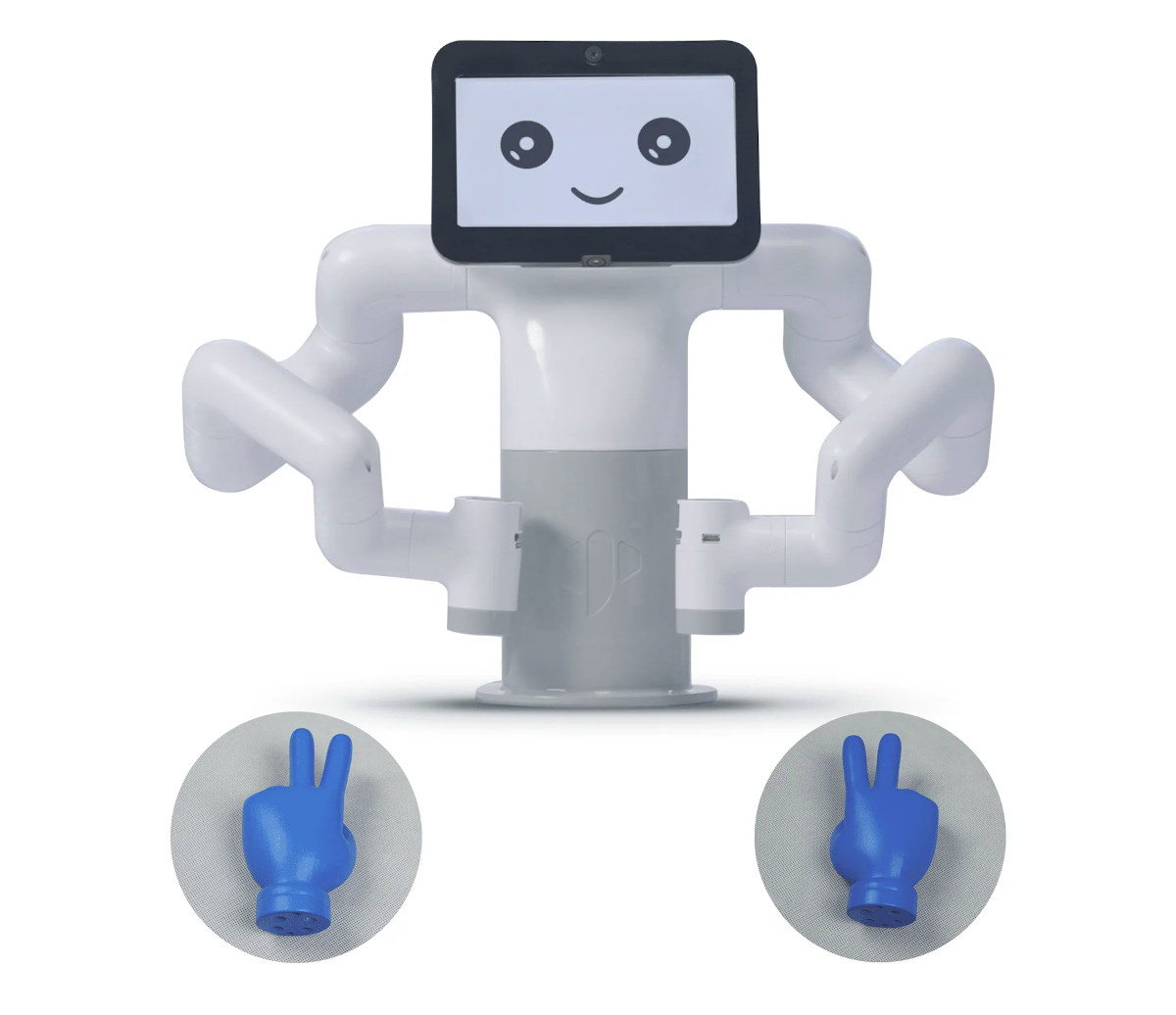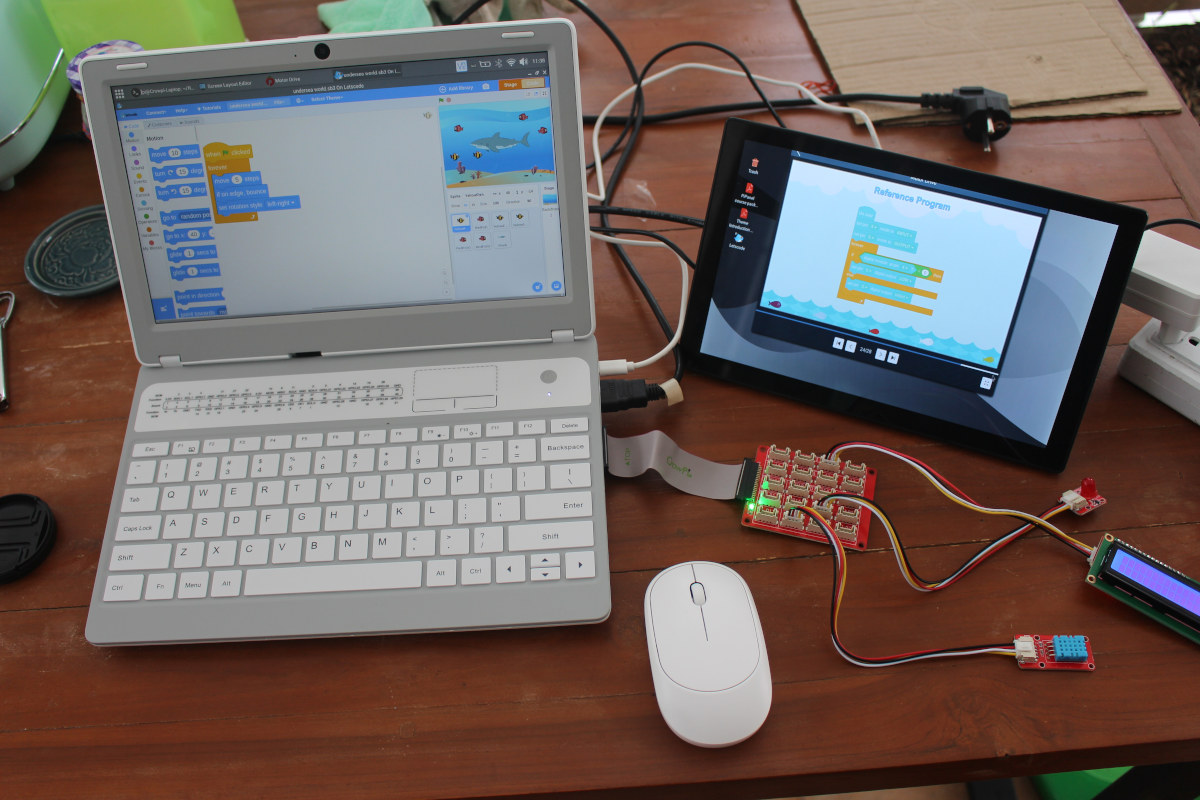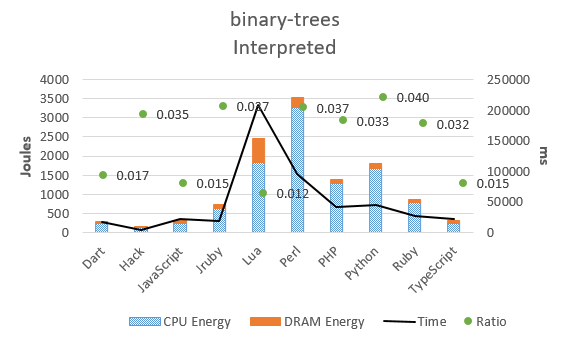ELECFREAKS micro:bit XGO Robot Kit is a robotic dog designed for robotics education. It moves realistically and acts like a real pet dog, and can help teach various technology concepts related to mechanical engineering, electronics, programming, and artificial intelligence (AI). The kit support both the BBC Micro:bit V1 and V2 boards which can be programmed with Microsoft MakeCode, Python, the Arduino IDE, and other languages. The XGO robot is compact and can be easily used on a desk or table. The robot is made of aluminum metal coated with a beautiful anodized finish. Each leg has 12 high-quality digital servos moving each joint, 3 on each side, totaling 12, helping the robot dog to move smoothly and flexibly. The robot can be controlled with apps, a joystick, and up to 19 ready-made postures, such as holding hands, looking for food, sitting down, squatting, etc… Content of the XGO robot kit: […]
MicroBlocks is a visual programming IDE for 32-bit microcontrollers
MicroBlocks is a visual programming IDE for 32-bit microcontrollers currently supporting the BBC Micro:bit V1/V2, Calliope mini (aka the German Micro:bit), Adafruit Circuit Playground Express and Bluefruit, Raspberry Pi Pico and Pico W, and various other boards including ESP32 and ESP8266-based boards. I discovered MicroBlocks in the list of talks for FOSDEM 2023, and although it did not make it to my virtual schedule, I thought it was interesting to look into and write about it. In their upcoming FOSDEM talk, Bernat Romagosa and Kathy Giori refer to MicroBlocks as small, fast, and human-friendly with development guided by four guiding principles: liveness, parallelism, portability, and autonomy. The IDE is inspired by Scratch, and as such, looks very similar to other visual programming interfaces I have used over the years. You can launch MicroBlocks from Google Chrome or Microsoft Edge on a PC (not a mobile device) without having to install […]
ultraArm P340 Arduino-based robotic arm draws, engraves, and grabs
Elephant Robotics ultraArm P340 is a robot arm with an Arduino-compatible ATMega2560 control board with a 340mm working radius whose arm can be attached with different accessories for drawing, laser engraving, and grabbing objects. We’ve previously written and reviewed the myCobot 280 Pi robotic arm with a built-in Raspberry Pi 4 SBC, but the lower-cost ultraArm P340 works a little differently since it only contains the electronics for controlling the servos and attachments, and needs to be connected to a host computer running Windows or a Raspberry Pi over USB. ultraArm P340 specifications: Control board based on Microchip ATMega2560 8-bit AVR microcontroller @ 16MHz with 256KB flash, 4Kb EEPROM, 8KB SRAM DOF – 3 to 4 axis depending on accessories Working radius – 340mm Positioning Accuracy – ±0.1 mm Payload – Up to 650 grams High-performance stepper motor Maximum speed – 100mm/s Communication interfaces – RS485 and USB serial Attachment […]
Review of myCobot 280 Pi robotic arm with Python and visual programming
myCobot 280 Pi is a versatile robotic arm with a 6 degree of freedom design. It was developed by Elephant Robotics using the Raspberry Pi 4 board as the main controller. The robot is compact and delivers stable operation making it ideal for confined spaces. It can also be programmed in a variety of languages, is easy to use, and offers a lot of features. It is suitable for those who are interested in learning how to program a robotic arm controller and for engineering projects. Unboxing myCobot 280 Pi The myCobot 280 Pi arm has a working range of 280 mm, weighs 850 grams, and can handle a payload of up to 250 grams. It is powered by 6 servo motors, one for each degree of freedom, and comes with a 5×5 matrix LED display, and supports LEGO parts as well. Controlled by a Raspberry Pi 4 single board […]
OpenHarmony development board borrows BBC Micro:bit edge connector
HopeRun’s HiHope development board features a HiSilicon Hi3861V100 32-bit RISC-V microcontroller compatible with OpenHarmony OS and looks very much like the BBC Micro:bit educational board notably with its edge connector. The board is also designed for youth education (in China) and comes with similar sensors, but there are some differences such as a 0.96-inch OLED instead of an LED matrix and support for offline voice recognition. There’s no wireless connectivity apart from NFC support. HiHope board specifications: MCU – HiSilicon Hi3861 32-bit microcontroller @ up to 160 MHz with 352 KB SRAM and 288 KB ROM, 2 MB flash memory Display – 0.96-inch OLED display with 128×64 resolution (SSD1306) Connectivity – NFC with R/W mode, card emulation, and bidirectional mode USB – 1x USB Type-C port for power and programming Sensors – Temperature & humidity sensor, light sensor, microphone, 6-axis motion sensor Expansion – Edge connector with 5x rings (3x […]
myBuddy 280 dual arm robot features Raspberry Pi 4 SBC and ESP32 controllers
Elephants Robotics myBuddy 280, aka myBuddy 280 Pi, is a dual-arm collaborative robot for education with a 7-inch display powered by Raspberry Pi 4 SBC, and also features three ESP32-based M5Stack core modules that help with the internal communication between the motors and the Raspberry Pi board. It builds upon the earlier myCobot 280 Pi robot with a single arm, with the same 280mm working range, but the new robot offers two arms, and a total of 13 degrees of freedom (DoF). The robot is also equipped with two 2MP HD cameras for computer vision, a standard 3.3V expansion I/O interface, a LEGO expansion interface, and can be fitted with a variety of adapters such as suction pumps, grippers, little hands (see below), etc… myBuddy 280 specifications: SBC – Raspberry Pi 4 (2GB or 4GB RAM) single board computer to control the display and communicate with the ESP32 modules IoT […]
CrowPi L Review – Part 2: Learn programming and electronics with a Raspberry Pi 4 laptop
In the first part of our review of CrowPi L Raspberry Pi 4 laptop for education, we checked the hardware and accessories such as the CrowTail starter kit with various sensors and other electronics modules, and showed how to install or remove the Raspberry Pi 4 SBC from the laptop shell. I’ve now had more time to play with the educational software, so I’ll report my experience with the laptop when learning game design and hardware control with Letscode visual programming IDE, as well as the Python lessons for more advanced students. Reinstalling CrowPi OS image It’s the rainy season here in Thailand meaning it’s both hot and humid, and even though I’m not entirely sure it’s related, I recently had to reinstall Raspberry Pi OS on one of my Raspberry Pi with a corrupted SD card. It happened again with the CrowPi L after I left it in its […]
Save the planet! Program in C, avoid Python, Perl
As a former software engineer who’s mostly worked with C programming, and to a lesser extent assembler, I know in my heart that those are the two most efficient programming languages since they are so close to the hardware. But to remove any doubts, a team of Portuguese university researchers attempted to quantify the energy efficiency of different programming languages (and of their compiler/interpreter) in a paper entitled Energy Efficiency across Programming Languages published in 2017, where they looked at the runtime, memory usage, and energy consumption of twenty-seven well-known programming languages. C is the uncontested winner here being the most efficient, while Python, which I’ll now call the polluters’ programming language :), is right at the bottom of the scale together with Perl. The study goes through the methodology and various benchmarks, but let’s pick the binary-trees results to illustrate the point starting with compiled code. To the surprise […]


